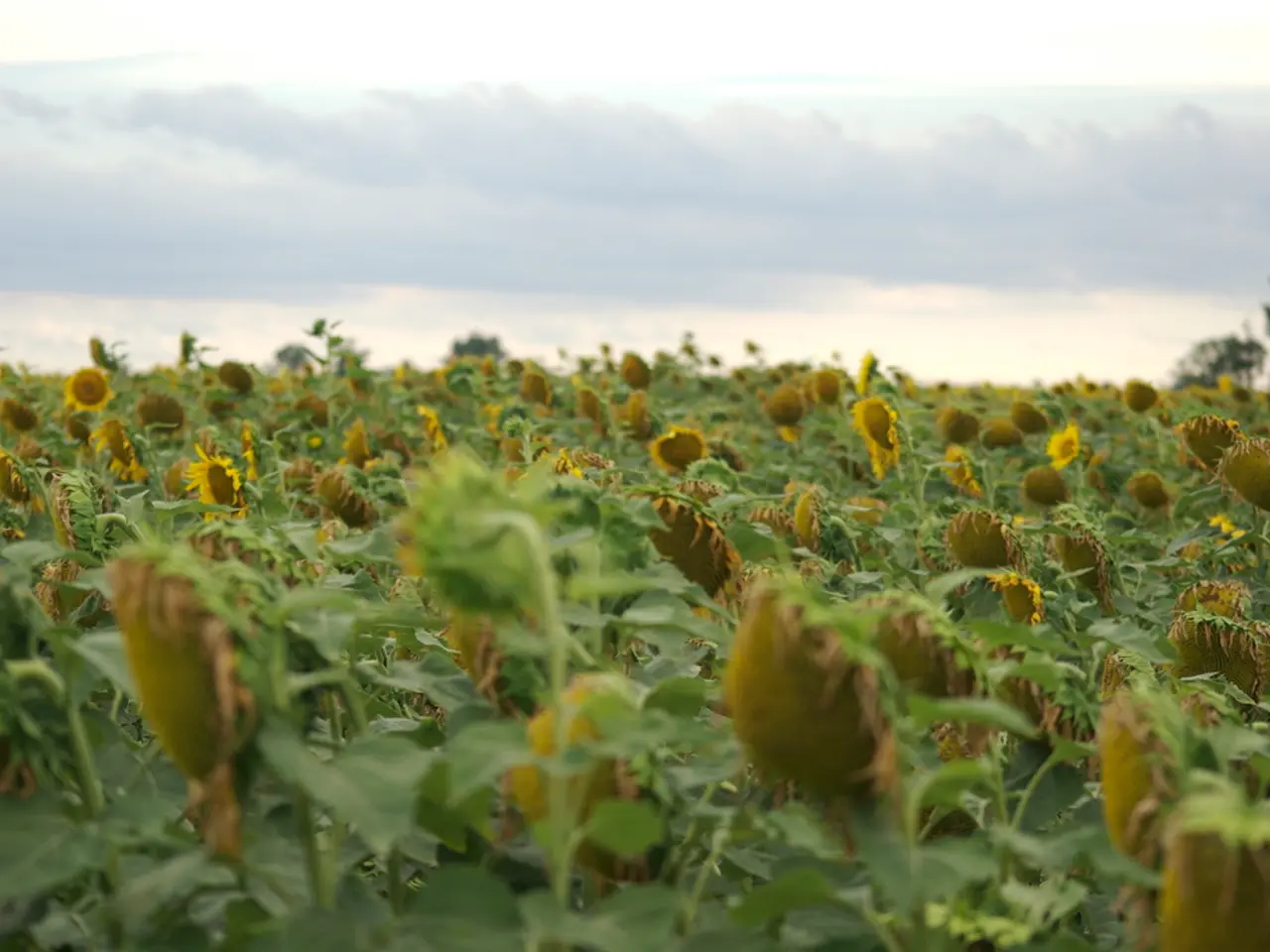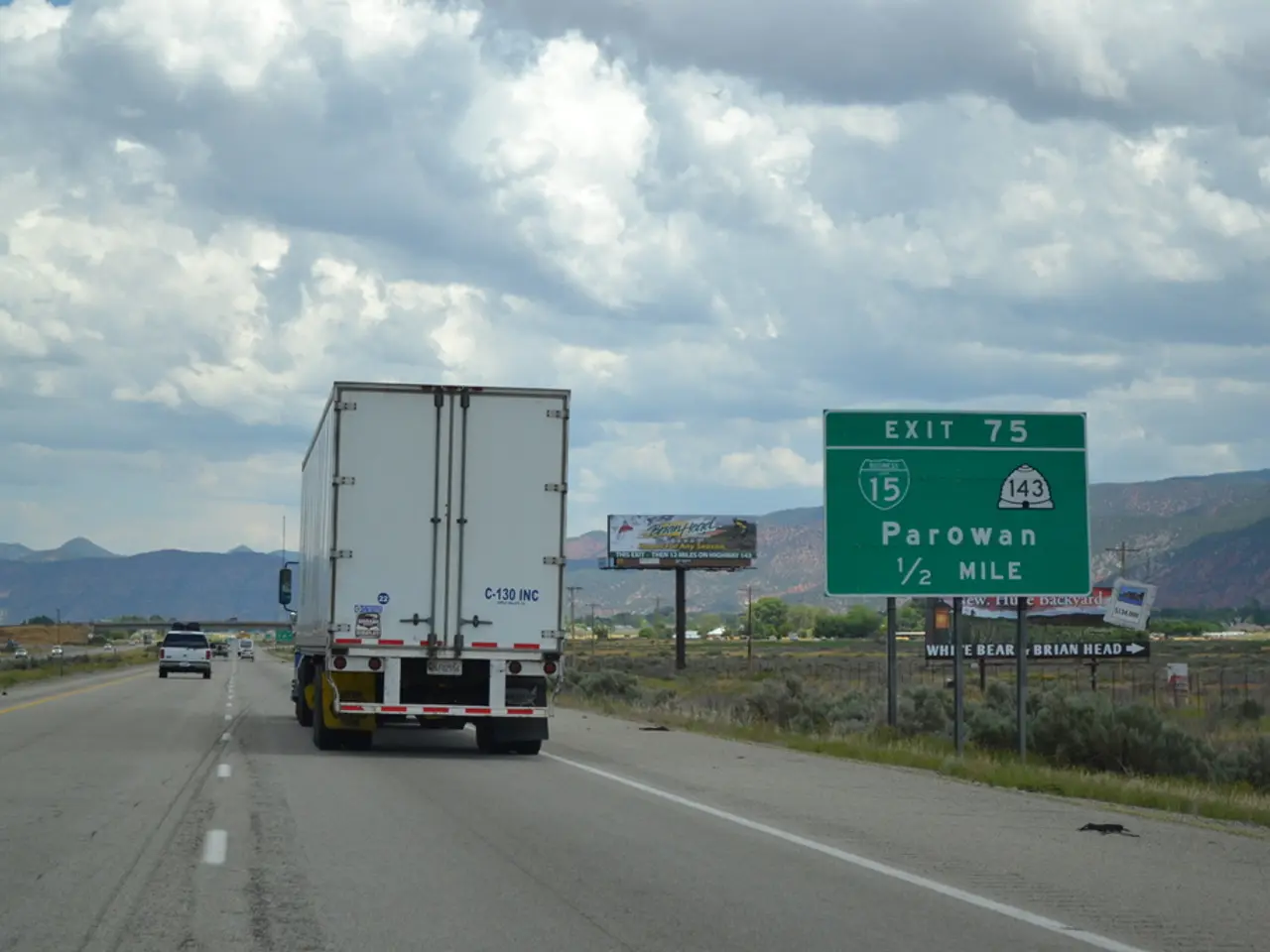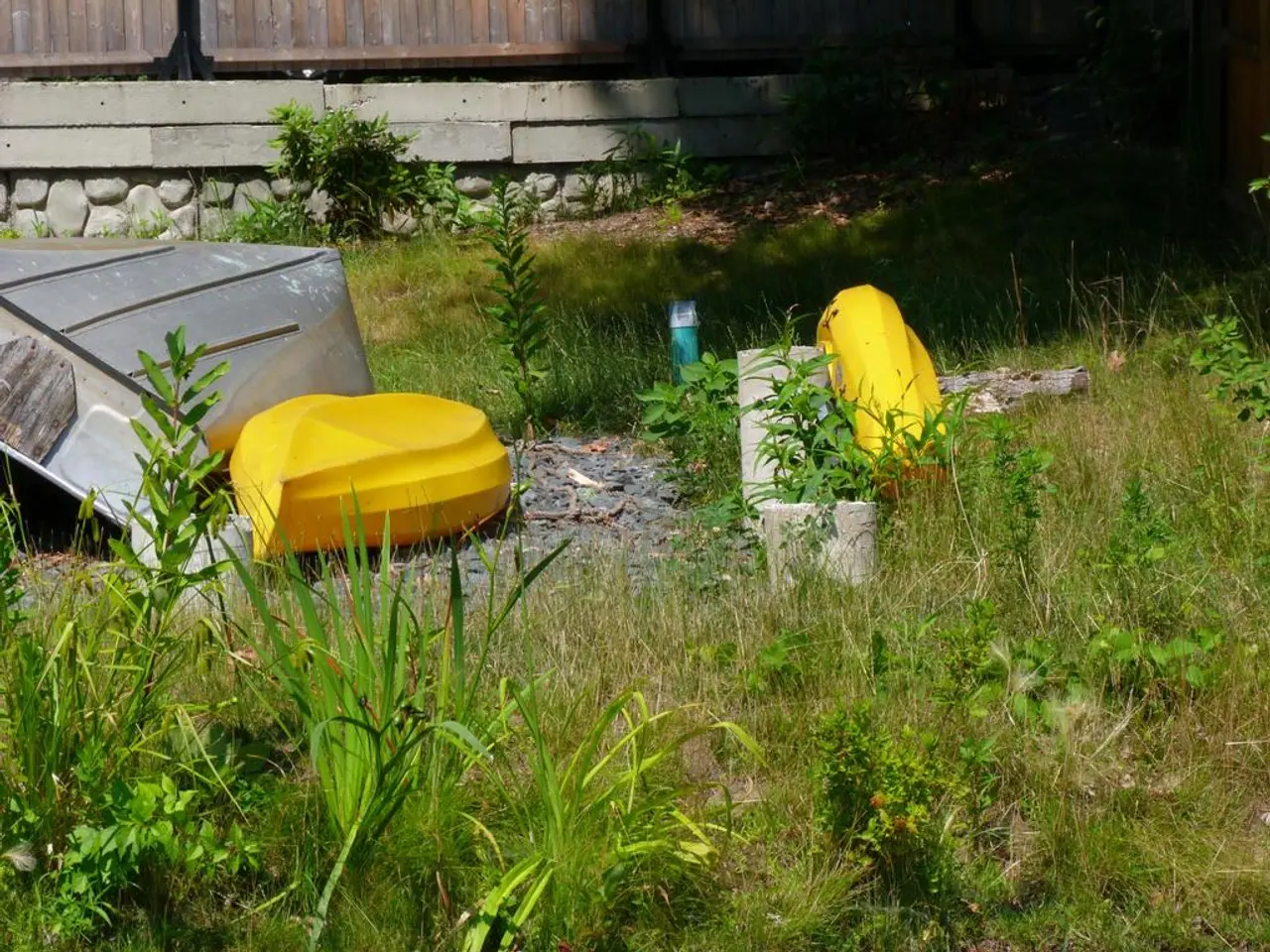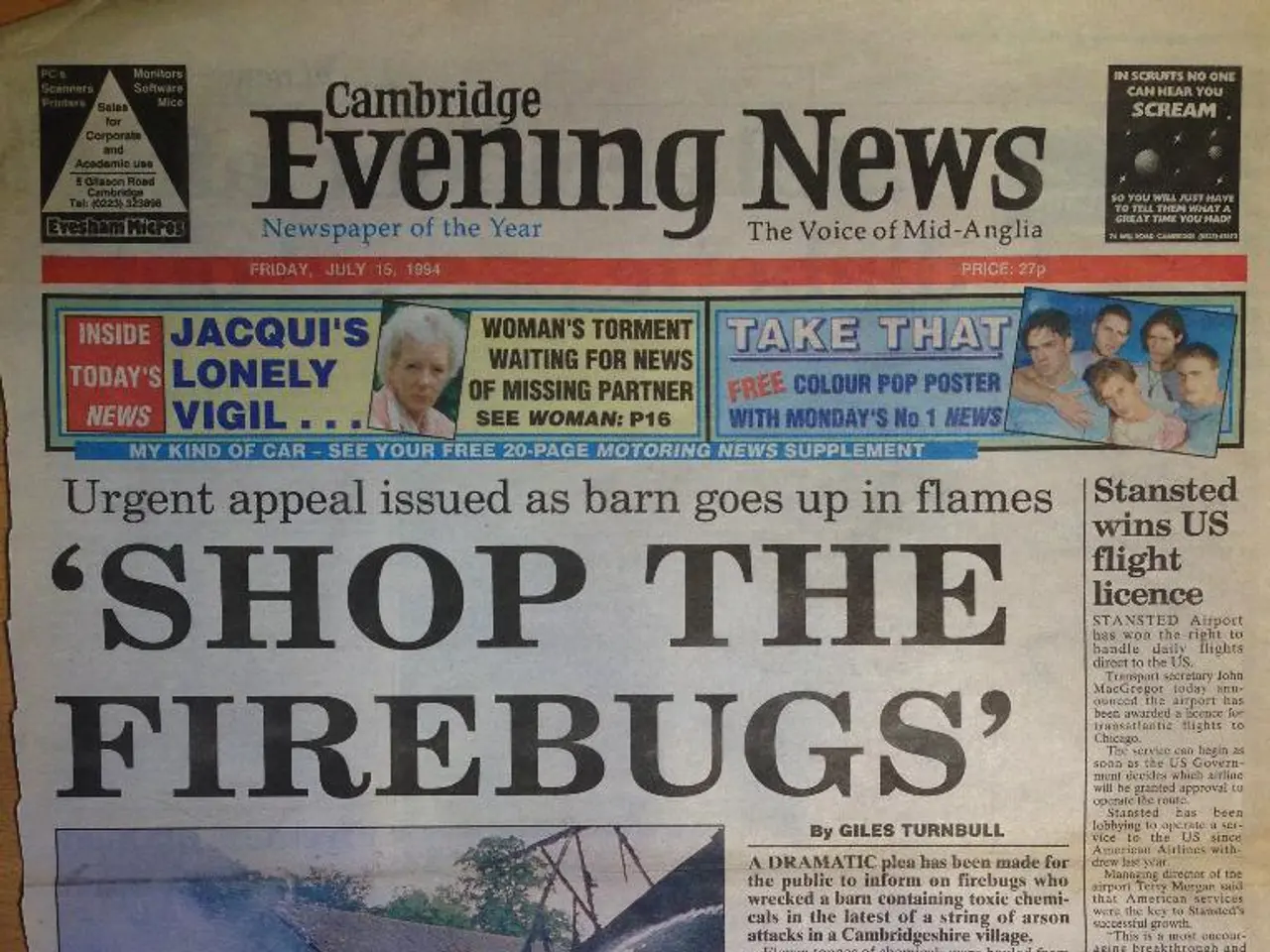Residents protest proposed construction of large-scale solar power facility in serene rural landscape, previously recognized through The Vicar of Dibley television series
Community Opposition to Proposed Solar Farm in Oxfordshire
In the heart of Oxfordshire, a proposed solar farm has sparked concern among local residents, particularly those in the picturesque village of Postcombe. The solar farm, if approved, could potentially impact the daily lives of villagers and the surrounding landscape, which is cherished by thousands of commuters traveling up and down the M40.
The proposed solar farm, spanning over 97 hectares, is situated in an area that holds a special place in British television history, featuring in the opening credits of the 1990s BBC sitcom, The Vicar of Dibley. John Poole, a local resident and parish councillor, has taken it upon himself to raise awareness about the solar farm plans and encourage people to voice their opinions on the planning portal.
Mr. Poole expresses that the villagers are not against renewable energy but are opposed to the location of the proposed solar farm. The solar panels, planned to be mounted nearly 10 feet off the ground, would be a stark contrast to the patchwork fields, farmland, and small villages that make up the landscape. Local resident Bob Massie has described the potential impact as "devastating" and "frightening."
The solar farm would be built in fields that contain a local footpath connecting Postcombe to Lewknor, a path loved by families and dog walkers. The villagers, who have solar panels on their houses, electric cars, or both, and are putting solar panels onto their village hall, are concerned that the electricity generated by the solar farm would not benefit them directly, but would be sent to the National Grid.
The proposed solar farm would also temporarily block a funeral path used to transport coffins from Postcombe to Lewknor, adding to the concerns of the villagers. The plans for the solar farm are currently being considered by South Oxfordshire District Council, with the deadline for locals to lodge their objections at the end of the month.
The development of the solar farm is being spearheaded by a private company named Solar2. The company has yet to comment on the concerns raised by the community. As the planning process unfolds, the community's voices are making themselves heard, calling for a balance between renewable energy expansion and landscape conservation.
[1] Campaign to Protect Rural England (CPRE). (2021). Solar farms in Areas of Outstanding Natural Beauty (AONBs) and National Parks. Retrieved from https://www.cpre.org.uk/what-we-do/policy/planning/solar-farms-in-areas-of-outstanding-natural-beauty-aonbs-and-national-parks/ [2] Department for Business, Energy & Industrial Strategy (BEIS). (2021). Community benefits from onshore wind. Retrieved from https://www.gov.uk/guidance/community-benefits-from-onshore-wind [3] National Planning Policy Framework. (2019). Planning Policy for Renewable Energy. Retrieved from https://www.gov.uk/government/publications/national-planning-policy-framework--2/national-planning-policy-framework [4] Planning Inspectorate. (2021). Solar farms and the planning system. Retrieved from https://www.gov.uk/guidance/solar-farms-and-the-planning-system [5] Friends of the Earth. (2020). Planning system failing to protect England's landscapes from renewable energy developments. Retrieved from https://friendsoftheearth.uk/our-work/planning-system-failing-to-protect-englands-landscapes-from-renewable-energy-developments
- The villagers of Postcombe, who have embraced renewable energy with solar panels on their homes, electric vehicles, and the village hall, are disheartened as the proposed solar farm might send the electricity to the National Grid instead of benefiting them directly.
- In the face of a proposed solar farm that threatens the picturesque landscape, local residents in Oxfordshire are turning to resources like the Campaign to Protect Rural England (CPRE) for guidance on how to preserve their cherished environment.
- The solar farm under consideration by South Oxfordshire District Council, if approved, would not only impact the villagers' daily lives but also block a historic funeral path used to transport coffins from Postcombe to Lewknor, adding to the concerns of the community.
- The proposed solar farm, spearheaded by Solar2, has sparked controversy as it could potentially adversely affect the environment, including the local footpath connecting Postcombe to Lewknor, loved by families and dog walkers.
- Amid the growing debate over the proposed solar farm in Oxfordshire, various environmental organizations such as the Department for Business, Energy & Industrial Strategy (BEIS), the National Planning Policy Framework, the Planning Inspectorate, and Friends of the Earth are closely monitoring the development, striving to strike a balance between renewable energy expansion and landscape conservation.




